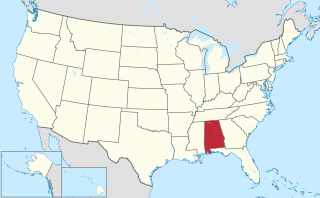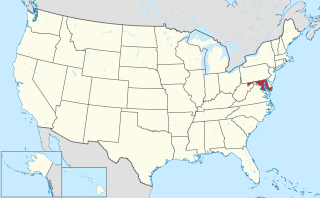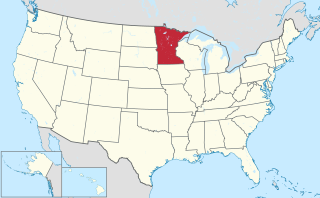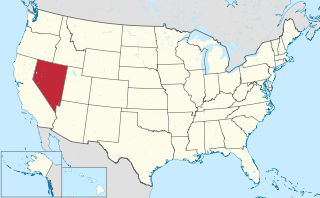
Following is a table of United States presidential elections in Alabama, ordered by year. Since its admission to statehood in 1819, Alabama has participated in every U.S. presidential election except the election of 1864, during the American Civil War, when the state had seceded to join the Confederacy.

Following is a table of United States presidential elections in Delaware, ordered by year. Since its admission to statehood in 1787, Delaware has participated in every U.S. presidential election.

Following is a table of United States presidential elections in Georgia, ordered by year. Since its admission to statehood in 1788, Georgia has participated in every U.S. presidential election except the election of 1864, when it had seceded in the American Civil War.

Following is a table of United States presidential elections in Illinois, ordered by year. Since its admission to statehood in 1818, Illinois has participated in every U.S. presidential election.

Following is a table of United States presidential elections in Indiana, ordered by year. Since its admission to statehood in 1816, Indiana has participated in every U.S. presidential election.

Following is a table of United States presidential elections in Iowa, ordered by year. Since its admission to statehood in 1846, Iowa has participated in every U.S. presidential election.

Following is a table of United States presidential elections in Kentucky, ordered by year. Since its admission to statehood in 1792, Kentucky has participated in every U.S. presidential election. Prior to the election of 1792, Kentucky was part of Virginia, and residents of the area voted as part of that state.

Following is a table of United States presidential elections in Louisiana, ordered by year. Since its admission to statehood in 1812, Louisiana has participated in every U.S. presidential election except the election of 1864, during the American Civil War. At that time, Louisiana was controlled by the Union and held elections, but electors were not ultimately counted.

Following is a table of United States presidential elections in Maine, ordered by year. Since its admission to statehood in 1820, Maine has participated in every U.S. presidential election. Prior to 1820, much of the territory currently comprising the state of Maine was part of the state of Massachusetts, and citizens residing in that area have thus been able to participate in every U.S. election. Since 1972, Maine awards two electoral votes based on the statewide vote, and one vote for each of the two congressional districts. However, it is rare that this results in a split vote. It has done so twice, in 2016 and 2020.

Following is a table of United States presidential elections in Maryland, ordered by year. Since its admission to statehood in 1788, Maryland has participated in every U.S. presidential election. Considered a bellwether state during the 20th century, only voting for the losing candidate three times during that century, Maryland has since become one of the most blue (Democratic) states, last voting for a Republican candidate in 1988.

Following is a table of United States presidential elections in Massachusetts, ordered by year. Since its admission to statehood in 1788, Massachusetts has participated in every U.S. presidential election.

Following is a table of United States presidential elections in Minnesota, ordered by year. Since its admission to statehood in 1858, Minnesota has participated in every U.S. presidential election.

The following is a table of United States presidential elections in Nevada, ordered by year. Since its admission to statehood in 1864, Nevada has participated in every U.S. presidential election. Since New Mexico's statehood in 1912, Nevada has voted for the same candidate as New Mexico in all presidential elections except for 2000.

Following is a table of United States presidential elections in New York, ordered by year. Since its admission to statehood in 1788, New York has participated in every U.S. presidential election except the election of 1788–1789, when it failed to appoint its allotment of eight electors because of a deadlock in the state legislature.

Following is a table of United States presidential elections in North Carolina, ordered by year. Since its admission to statehood in 1789, North Carolina has participated in every U.S. presidential election except the election of 1864, during the American Civil War, when the state had seceded to join the Confederacy. North Carolina did not participate in the 1788–89 United States presidential election, as it did not ratify the Constitution of the United States until months after the end of that election and after George Washington had assumed office as President of the United States.

Following is a table of United States presidential elections in Oregon, ordered by year. Since its admission to statehood in 1859, Oregon has participated in every U.S. presidential election.

Following is a table of United States presidential elections in Rhode Island, ordered by year. Since its admission to statehood in 1790, Rhode Island has participated in every U.S. presidential election.

Following is a table of United States presidential elections in South Carolina, ordered by year. Since its admission to statehood in 1788, South Carolina has participated in every U.S. presidential election except the election of 1864 during the American Civil War, when the state had seceded to join the Confederacy.

Following is a table of United States presidential elections in Tennessee, ordered by year. Since its admission to statehood in 1796, Tennessee has participated in every U.S. presidential election except the election of 1864, during the American Civil War. At that time, Tennessee was controlled by the Union and held elections, but electors were not ultimately counted.

Following is a table of United States presidential elections in Vermont, ordered by year. Since its admission to statehood in 1791, Vermont has participated in every U.S. presidential election.




















